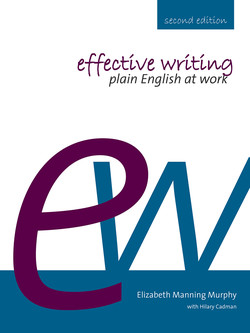Читать книгу Effective Writing - Elizabeth Manning Murphy - Страница 38
На сайте Литреса книга снята с продажи.
4.4 Adjective
ОглавлениеAdjectives modify nouns – that is, they give more information about the noun. They are usually placed immediately before the noun, but can be in another part of the sentence:
This is a red rose. (red modifies the noun rose – together they say something about the subject this)
This rose is red. (rose is now the subject of the sentence, but the adjective red still modifies it)
Adjectives have three degrees of comparison – positive (when nothing is being compared), comparative (when two things are being compared) and superlative (when three or more things are being compared). The usual comparative and superlative endings are -er and -est respectively, but many long adjectives take the words more and most respectively in front of the positive form:
Maria is a quick typist. (positive – no comparison involved)
Anna is quicker than Maria, but Jack is the quickest of all. (quicker is comparative – Anna and Maria are the two being compared; quickest is superlative – Jack is being compared with both Anna and Maria)
‘Peace’ is a beautiful rose. (positive)
I think ‘Peace’ is more beautiful than ‘Princess Grace’. (comparative)
‘Woburn Abbey’ is the most beautiful rose in the garden. (superlative)
Some adjectives are irregular in their comparative and superlative formations. Here are a few:
| Positive | Comparative | Superlative |
| good | better | best |
| far | further | furthest |
| ill | worse | worst |
| much | more | most |
| little | less | least |
Some adjectives do not have degrees of comparison – nothing can be more empty than empty, and no painting or antique vase can be more unique than unique.
Adjectives include words that are primarily different parts of speech but act as adjective – nouns, as in cattle truck and parcel post; and participles of verbs, as in rising sun, working man, fallen idol and broken dream. Again, none of these forms has degrees of comparison.
Words can be joined together with hyphens to form compound adjectives:
A ten-year-old girl won first prize in the mathematics competition.
The hyphens are not needed when the words do not immediately precede the noun they modify:
First prize in the mathematics competition was won by a girl who was ten years old.
Activity 4d
Correct the misused adjectives in these sentences:
1 Of methods A and B, A is the more simpler way to follow.
2 The soprano sings good, but the most great singer I ever heard was a tenor.
Solutions 4d
1 more simpler → simpler
2 good → well; most great → greatest
